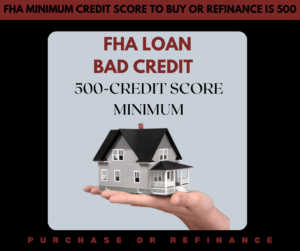Refinance:
- Minimum credit score of 500
- No late payments on the mortgage in the last 12 months
- Up to 80% loan-to-value (LTV) for cash-out
- Flexible credit requirements
- Low interest rates
Refinance:
Property Type:
Cash-Out Refinance:

MORTGAGE REFINANCE WITH BAD CREDIT NEW JERSEY
Mortgage refinance is the process of obtaining a new mortgage loan to replace an existing one on the same property. Homeowners often choose to refinance their mortgages for various reasons, and the process involves paying off the original loan and establishing a new one. Here are some common reasons why individuals might consider mortgage refinancing:
If market interest rates have dropped since the original mortgage was obtained, refinancing allows homeowners to secure a new loan with a lower interest rate. This can result in lower monthly payments and potentially significant long-term savings.
Even without a decrease in interest rates, homeowners may choose to refinance to extend the loan term. While this may result in paying more interest over the life of the loan, it can lower monthly payments and improve short-term financial flexibility.
Homeowners may switch from an adjustable-rate mortgage (ARM) to a fixed-rate mortgage (or vice versa) during the refinance process. This decision can be influenced by changes in the individual’s financial situation or preferences regarding interest rate stability.
Some homeowners choose to refinance to access the equity in their homes. With a cash-out refinance, they can borrow more than the remaining balance on their current mortgage, receiving the excess amount in cash. This money can be used for various purposes, such as home improvements, debt consolidation, or other financial needs.
Homeowners with multiple debts, such as credit card balances or personal loans, may refinance their mortgage to consolidate these debts. By rolling high-interest debts into a mortgage with a potentially lower interest rate, individuals can streamline their payments and reduce overall interest costs.
If a homeowner initially financed their home with a down payment of less than 20%, they might be required to pay private mortgage insurance. As the home’s value increases or the mortgage balance decreases, refinancing can help eliminate the need for PMI.
One of the most pressing questions for individuals with bad credit is whether refinancing is even possible. The answer is yes; you can refinance with bad credit New Jersey. FHA allows credit scores down to 500. There must not be any late payments on the mortgage in the last 12 months and at least 20% equity in the home after completing a cash-out refinance. Up to 97% LTV for a rate/term refinance.
Mortgage refinance with bad credit New Jersey can offer several benefits, despite the challenges it may present. Here are some advantages to consider:
One of the primary benefits of refinancing with bad credit is the potential to secure a lower interest rate. Even a slight reduction in interest rates can lead to significantly lower monthly mortgage payments, providing much-needed relief to your budget.
Refinancing allows you to consolidate high-interest debts, such as credit cards or personal loans, into your mortgage. By combining these debts, you can simplify your finances and potentially reduce overall interest costs.
If your home has gained value since your original mortgage, refinancing with bad credit can give you access to that built-up equity. You can use the funds for home improvements, education expenses, or other essential needs.
Depending on your financial situation and the available options, you might be able to secure more favorable loan terms, such as a shorter loan term or a fixed-rate mortgage. This can provide long-term financial stability.
If you currently have an adjustable-rate mortgage (ARM), refinancing to a fixed-rate mortgage can bring stability to your monthly payments. With fixed rates, you won’t be vulnerable to fluctuating interest rates.
Successfully refinancing with bad credit and making timely mortgage payments can help rebuild your credit history. Over time, this can lead to an improved credit score, opening doors to better financial opportunities.
If you initially obtained a mortgage with a low down payment, you might be paying for PMI. Refinancing at a higher loan-to-value ratio can help eliminate PMI, saving you money.
Refinancing with bad credit provides a chance to get back on track with your finances. By managing your new mortgage responsibly, you can demonstrate financial responsibility to future lenders.
By refinancing with bad credit and consolidating debts, you streamline your monthly payments. Instead of multiple creditors, you make a single monthly payment to your mortgage lender.
If you’re struggling to keep up with your current mortgage payments, refinancing with bad credit can provide a lifeline, preventing the risk of foreclosure and allowing you to stay in your home.

Mortgage-World.com
Buy a home for the first time with a minimum 500 credit score. Get started today!
Refinance your way to a better mortgage and start saving money now. Apply online!
535 Bergen Blvd. Suite 2
Ridgefield NJ 07657